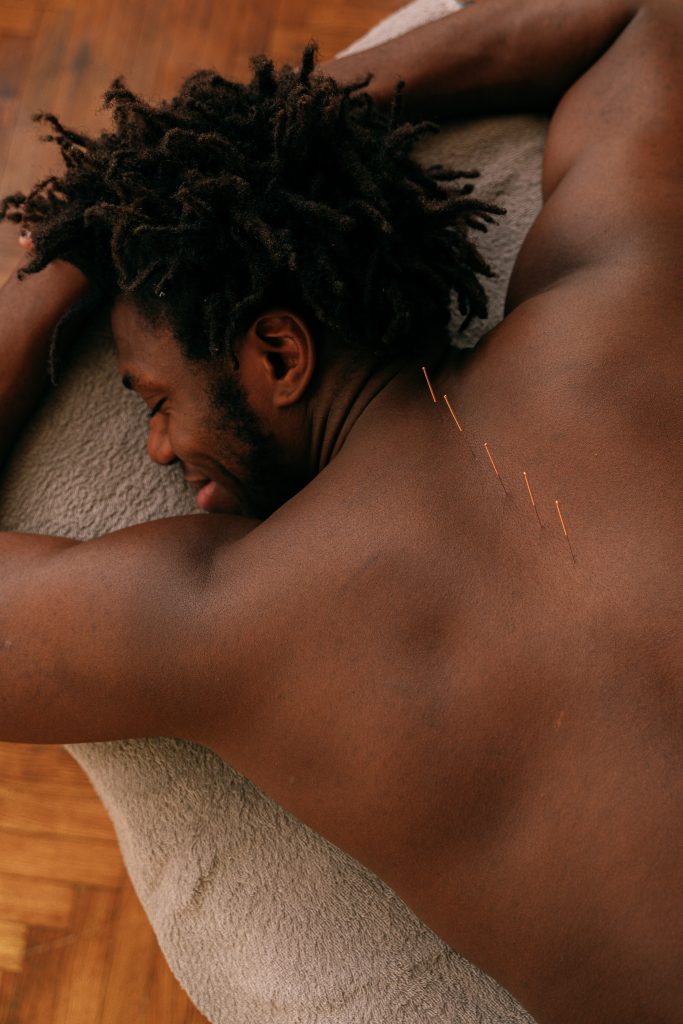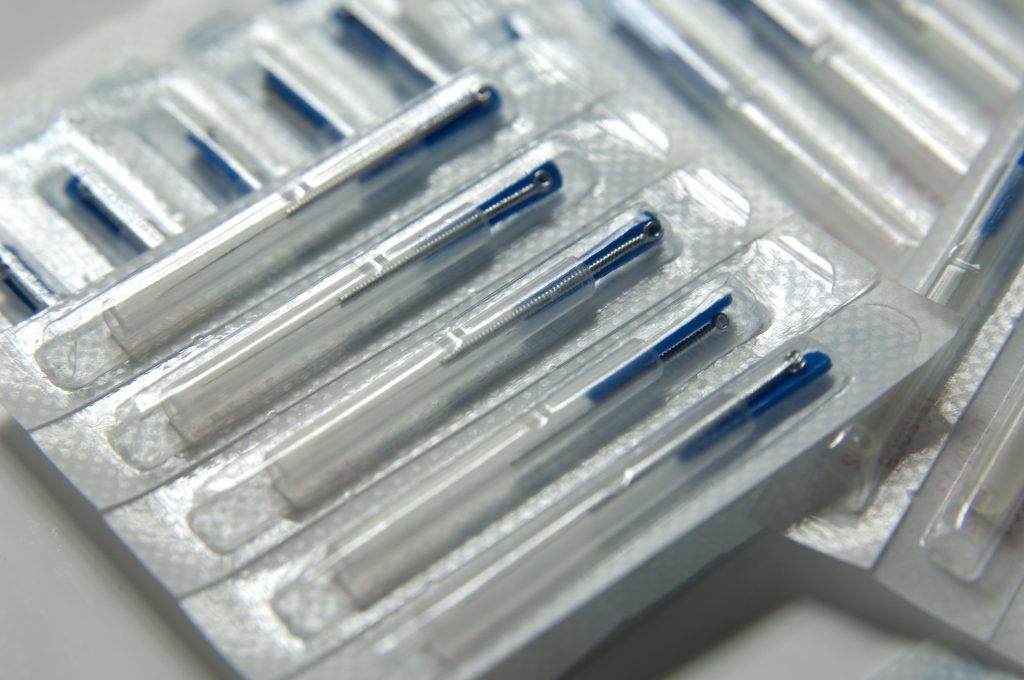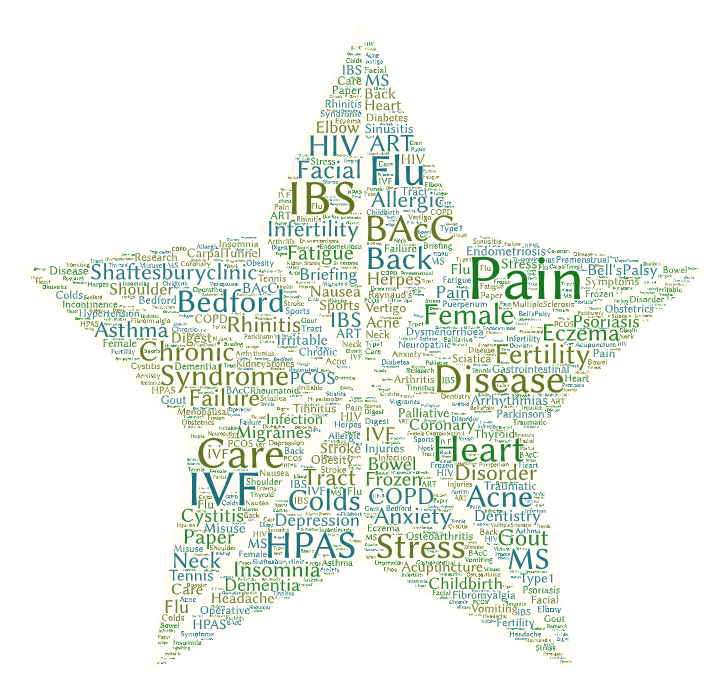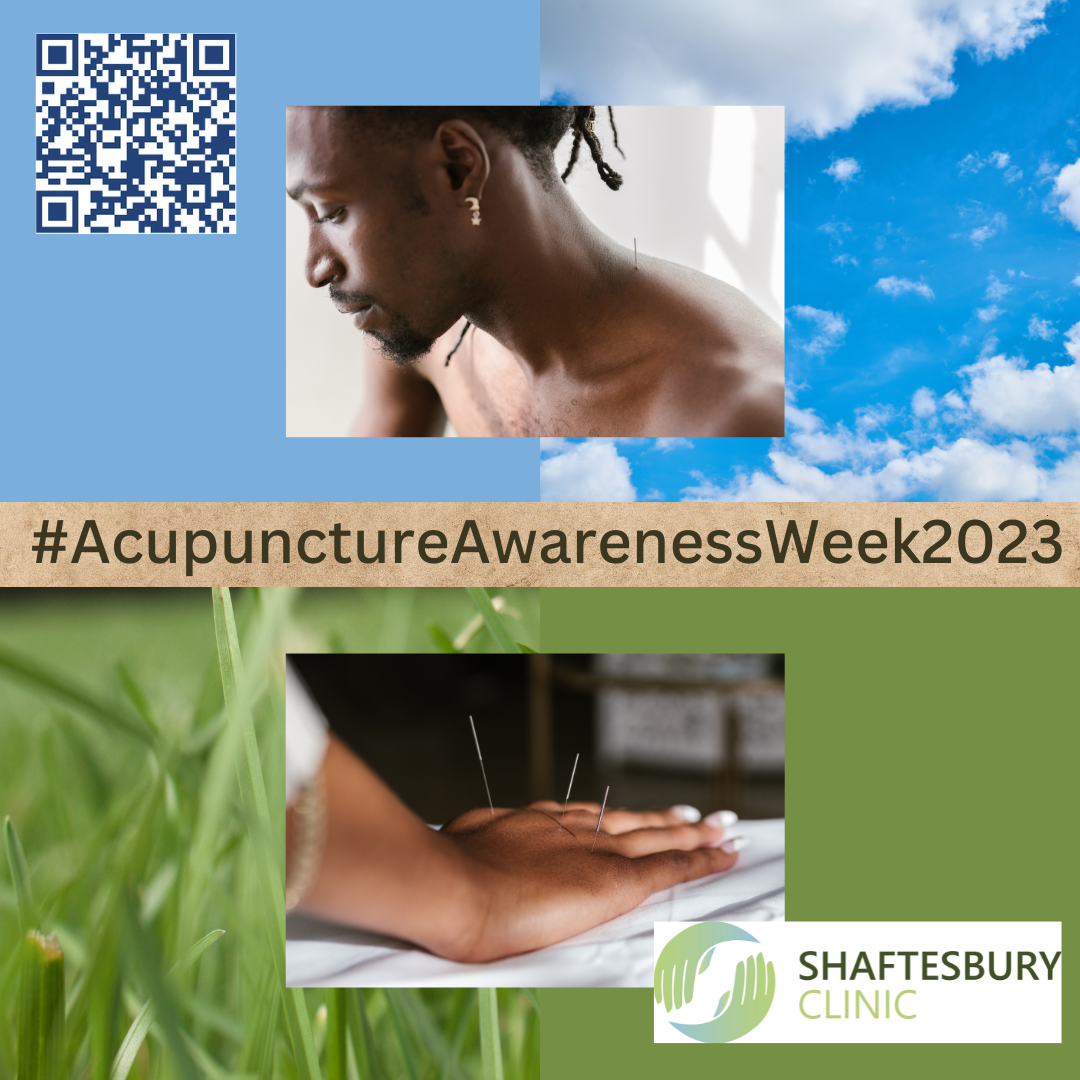March 27th, 2023.
In this blog post, for #AcupunctureAwarenessWeek2023, we’ll review some very recent research developments in acupuncture. Acupuncture is widely used for pain relief, and here we’ll look at brand new (2023) research, to help us consider how effective and safe it is for three specific types of pain; dental pain, thalamic pain (after stroke), and menstrual migraine. We will discuss the studies and then explain some key concepts and terms related to the research methods used in acupuncture. We’ll also provide the full references so you can enjoy reading the articles and find out more.
We’ll present:
- A new RCT into acupuncture for a dental pain
- A systematic review of acupuncture for a specific type of chronic pain after stroke
- A protocol for an upcoming RCT on a specific type of migraine.
Each of these studies from peer-reviewed journals, and have research questions, methods and outcomes, but they all contribute to the growing evidence base for acupuncture as a valid healthcare choice alongside usual treatment.
To know more about RCT’s, systematic reviews and what they are for, keep reading to the end of the blog. Full references follow at the end.
1. Kumar & Tewari, 2023. Acupuncture for Management of Endodontic Emergencies: a Review.

Kumar and Tewari (2023) reviewed the current evidence for the use of acupuncture in endodontics, with a focus on its potential to provide emergency pain relief. Root canal treatment is often used to treat painful endodontic conditions, but comes with a high incidence of postoperative pain and potential side effects from drug treatment; drug treatment not always being effective. Additionally, concerns have been raised about the risk of COVID-19 transmission due to aerosols generated during dental procedures.
Acupuncture is commonly employed for the treatment of pain, including endodontic pain and dental anaesthesia. The researchers weighed up the current evidence for acupuncture in endodontics with a literature review of five electronic databases. They selected five studies that met their eligibility criteria (n=312).
Overall, acupuncture reduced the failure of nerve block in patients with irreversible pulpitis and in controlling both during (intraoperative) and postoperative pain from root canal. Acupuncture also reduced dental anxiety, and lowered the amount of painkiller drugs needed by, thus minimising side effects of analgesia. The researchers concluded that acupuncture could play a role in managing these patients, but that more in-depth clinical research with larger studies is needed in this area due to the small number and variable quality of available studies. On the issue of Covid-19, researchers advocated a role for acupuncture, as a non-aerosol generating approach that could assist in pain management, where other techniques are not appropriate.
2. Li & Chen 2023: Acupuncture for thalamic pain after stroke: A systematic review and meta-analysis

Thalamic pain: A type of chronic pain caused by damage to the sensory area of the brain – Thalamus. Causing burning, tingling, stabbing, or freezing sensations it affects one side of the body or face, usually the opposite side to the brain injury site. Coming on straight after a brain injury, or developing months or years later, thalamic pain can impact a person’s quality of life and mental health.
In this study, Li and Chen examined this type of pain, secondary to stroke. Acupuncture is used effectively for various types of pain, including thalamic pain, and in China it’s used first-line alongside mainstream medicine immediately post-stroke. The researchers searched five electronic databases for randomized controlled trials (RCTs) that compared acupuncture with drugs for thalamic pain after stroke: Five studies met their criteria (n=368).
This review found acupuncture effective in reducing thalamic pain after stroke, with higher success rates and no significant safety difference compared to drugs. Li and Chen (2023) concluded that acupuncture is a promising treatment for thalamic pain, but called for further large-scale and high-quality trials to confirm their findings.
Note: Acupuncture should complement medical treatment, and not replace it. Acute and life-threatening situations, medical emergencies like stroke require seeking emergency medical input, without delay.
3. Wu et al, 2023: Determining the Efficacy and Safety of Acupuncture for the Preventive Treatment of Menstrual Migraine: A Protocol for Systematic Review and Meta-Analysis

This protocol in the Journal of Pain Research, is for Wu et al’s (2023) forthcoming systematic review and meta-analysis into the clinical efficacy and safety of acupuncture in preventing menstrual migraine. The researchers state that current treatments are lacking in effectiveness in this area.
Nine databases will be searched, and the Cochrane risk of bias instrument used to assess trial quality. The results will inform treatment decisions and be useful to patients, physicians, and policy makers alike: We’ll let you know, as soon as we see any update: This will be an interesting addition to the research base.
Conclusion
We covered three brand new research papers on acupuncture for three sorts of pain: dental, thalamic (after stroke), and menstrual migraine. Acupuncture may offer an effective and low-risk option for managing these types of pain, per the research we’ve seen.
Further resources on our conditions page, lead to articles about acupuncture research in different conditions here: https://shaftesburyclinic.com/conditions/.
As with this growing research field, more high-quality and large-scale studies are needed to confirm the efficacy and safety of acupuncture for these pain conditions, as well as which are the most successful protocols or point combinations to use in each case.
Acupuncture represents a valid healthcare choice alongside usual treatment for many conditions. We love to talk about what we do: You can always schedule a free 15 minute consultation with one of our acupuncturists, to find out more!
Book here: https://shaftesburyclinic.janeapp.co.uk/
A note on the research
A randomized controlled trial (RCT) is a study design used in health research, to test the effectiveness of a medical treatment:
- Participants are randomly assigned to receive either the treatment being tested, or a placebo/sham/no treatment/wait list control
- Researchers look to determine whether the treatment arm is more effective than placebo
- RCTs are the “gold standard” in research, designed to minimise bias and give us the most reliable evidence
Systematic reviews of randomized controlled trials (RCTs) are highly useful and reliable in research:
- Systematic reviews entail a comprehensive overview of the evidence; assess the quality of the evidence and many go on to meta-analyse the data by putting together the results of numerous (RCT) studies to give a more powerful view of trends.
Good quality evidence is needed for people to make the best and most appropriate treatment decisions; for patients, their caregivers and those who make recommendations and fund healthcare (e.g. NICE, NHS England)
Next up: Mechanisms of Action
We have seen that acupuncture has been shown to benefit pain, what are the underlying mechanisms of action in the body and the brain that make this happen?
In our next blog, we’ll look the mechanisms of action for acupuncture in pain. In the meantime, check out our related pages:
Pain & Painful disorders – Condition Resources | shaftesburyclinic
Chronic Pain – Condition Resources | shaftesburyclinic
References:
Kumar, G. and Tewari, S., 2023. Acupuncture for Management of Endodontic Emergencies: a Review. Journal of Acupuncture and Meridian Studies, 16(1), pp.1-10.
Li, W. and Chen, S., 2023. Acupuncture for thalamic pain after stroke: A systematic review and meta-analysis. Medicine, 102(9), pp.e33006-e33006.
Wu, Q., Wang, J., Lin, X., Han, D., Hu, H. and Gao, H., 2023. Determining the Efficacy and Safety of Acupuncture for the Preventive Treatment of Menstrual Migraine: A Protocol for a PRISMA-Compliant Systematic Review and Meta-Analysis. Journal of Pain Research, pp.101-109.

